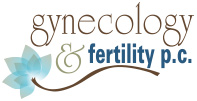The Why and How
October is Breast Cancer Awareness Month, a good time to remind ourselves about what we can do to lower our own risk of breast cancer, and help to catch it early if it is present. Knowing your own body is important in the fight for early diagnosis, and prevention.
Breast self-examination is recommended once per month, and in females still having periods, the best time of the month is 7 to 10 days after the period. At this point in cycle, the hormonal effects on the tissue will be such that lumps and bumpiness should be minimal. In postmenopausal patients, picking a time of the month that is easy to remember is just fine. Putting a monthly reminder in your phone, or on your calendar, might be a nice way to remember.
The first step is observation, or looking at the breast tissue. This is easiest to do in a mirror. Put your shoulders back, and look at both sides for any skin changes, or dimpling of the skin. You also want to make sure that the breasts look similar in shape and size.
Next, you want to make sure you are feeling all the breast tissue on both sides, extending from the sternum or chest bone, out to the edge of the breast under the armpit. Vertically, you want to examine from the clavicle, or the top of the inside of the shoulder, to the bottom of the breast. The key to a good exam is making sure that you feel all the breast tissue with a gentle but firm pressure. You certainly want to avoid pressing too hard and causing pain.
There are a couple of different methods for feeling the breast tissue, and either is fine, whatever is easiest for you. The first is the picket fence method, or going in an up and down motion with your fingertips across the body of the breast. You also want to touch and squeeze the nipple, and make sure there is no tenderness or discharge. Another method is the hands of the clock method, where starting from the nipple area, you use the finger tips to move out toward the edges of the breast, as though there were a clock face on the surface of the breast. Again, you want to make sure to check out the nipple for any changes or discharge as well.
It’s true that self-examination can be very anxiety provoking for a lot of women, sometimes due to a family history, or even personal history, of breast cancer. This is a normal emotion, but it is very important to remember that knowing your breast tissue is key for you to decrease your personal risk. Also, doing the examination monthly, and taking note of any changes will allow you to catch potential lumps when they are small, and if cancerous, hopefully at an early stage. If there is anything that concerns you, remember to call us and we can always do an examination, and order any imaging, such as an ultrasound or mammogram, that might be needed.
Remember, most of us won’t get breast cancer, but some of us will. So, protect yourself by knowing your body, and keeping your doctor updated on any changes or concerns to help us give you the best care possible.
